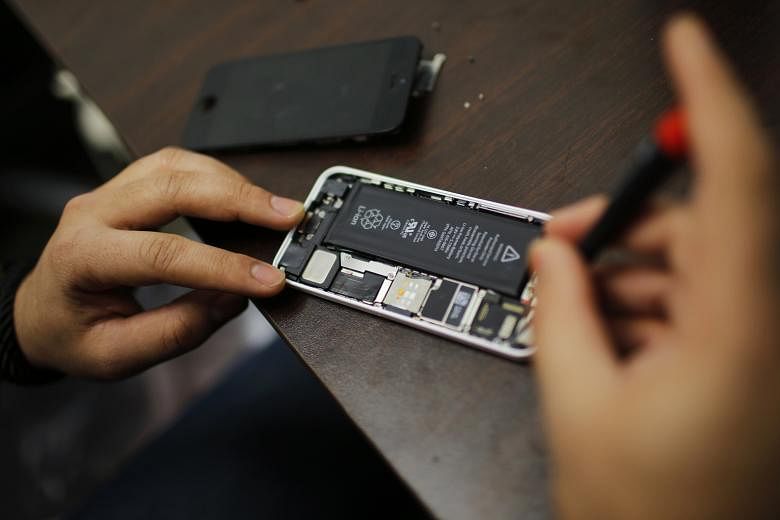NEW YORK/SAN FRANCISCO • Apple will likely seek to invoke the United States' protections of free speech as one of its key legal arguments in trying to block an order to help unlock the encrypted iPhone of one of the San Bernardino shooters, lawyers with expertise in the subject said this week.
The company on Thursday was granted three additional days by the court to file a response to the order. Apple will now have until Feb 26 to send a reply, a person familiar with the matter told Reuters.
The tech giant and the Obama administration are on track for a major collision over computer security and encryption after a federal magistrate judge in Los Angeles handed down an order on Tuesday requiring Apple to provide specific software and technical assistance to investigators.
Apple chief executive Tim Cook called the request from the Federal Bureau of Investigation (FBI) unprecedented. Other tech giants such as Twitter have rallied to support Apple, with Facebook saying on Thursday: "We will continue to fight aggressively against requirements for companies to weaken the security of their systems."
Government lawyers from the US Justice Department have defended their request in court papers by citing various authorities, such as a 1977 US Supreme Court ruling that upheld an order compelling a telephone company to provide assistance with setting up a device to record telephone numbers.
The high court said then that the All Writs Act, a law from 1789, authorised the order, and the scope of that ruling is expected to be a main target of Apple when it files a response in court by early next week.
But Apple will likely also broaden its challenge to include the First Amendment's guarantee of speech rights, according to lawyers who are not involved in the dispute but who are following it.
Compared with other countries, the US has a strong guarantee of speech rights even for corporations, and at least one court has ruled that computer code is a form of speech, although that ruling was later voided.
Apple could argue that being required to create and provide specific computer code amounts to unlawful compelled speech, said Ms Riana Pfefferkorn, a cryptography fellow at Stanford University's Centre for Internet and Society.
The order against Apple is novel because it compels the company to create a new forensic tool to use, not just turn over information in Apple's possession, Ms Pfefferkorn said.
The FBI and prosecutors are seeking Apple's assistance to read the data on an iPhone 5C that had been used by Syed Rizwan Farook who, along with his wife Tashfeen Malik, carried out the San Bernardino shootings that killed 14 people and wounded 22 others at a holiday party in December last year.
Apple's refusal to help the FBI has added pressure on Congress to balance the needs of privacy and law enforcement in encrypted communications - something it has tried but failed to do for years.
"These complex issues will ultimately need to be resolved by Congress, the administration and industry, rather than the courts alone, since they involve important matters of public policy," said Representative Adam Schiff of California, the top Democrat on the House intelligence committee, on Wednesday.
REUTERS, BLOOMBERG

